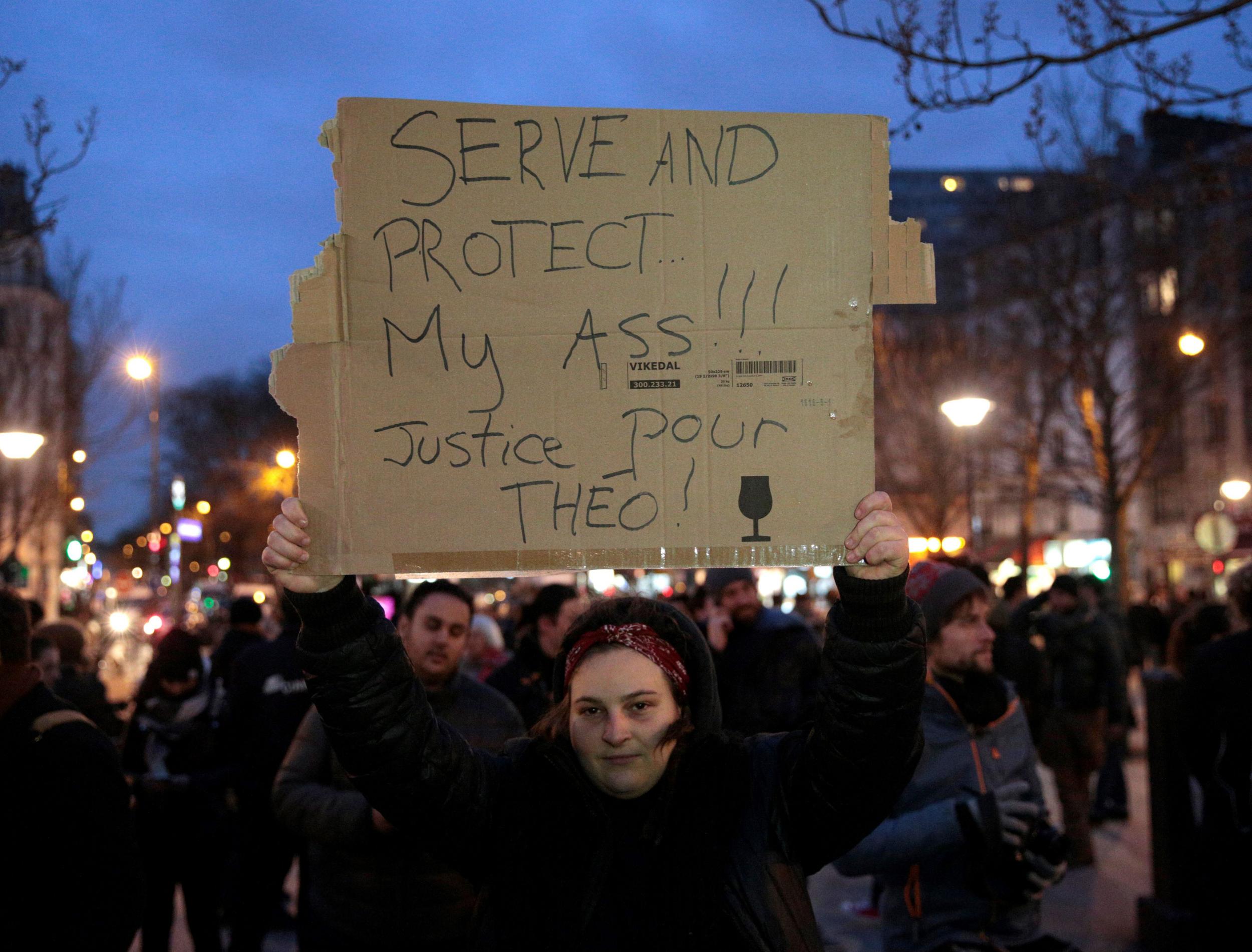French police say 'anal rape' of suspect with officer's truncheon was an accident
Protests over the alleged sexual assault of a youth worker have lasted for six nights in the Paris suburbs and are spreading across the country
Your support helps us to tell the story
From reproductive rights to climate change to Big Tech, The Independent is on the ground when the story is developing. Whether it's investigating the financials of Elon Musk's pro-Trump PAC or producing our latest documentary, 'The A Word', which shines a light on the American women fighting for reproductive rights, we know how important it is to parse out the facts from the messaging.
At such a critical moment in US history, we need reporters on the ground. Your donation allows us to keep sending journalists to speak to both sides of the story.
The Independent is trusted by Americans across the entire political spectrum. And unlike many other quality news outlets, we choose not to lock Americans out of our reporting and analysis with paywalls. We believe quality journalism should be available to everyone, paid for by those who can afford it.
Your support makes all the difference.Police in France have claimed that an officer anally raped a 22-year-old black man with a truncheon by mistake.
In an initial investigation, they found “insufficient evidence” to support the man's claim that he was deliberately sodomised.
A lawyer for one of the officer's suggested his expandable baton slipped into the man's anus by accident.
The findings of the internal police inquiry were announced as violent protests continued for a sixth night in Paris' northern suburbs, over the incident involving a man identified only as Théo.
The youth worker suffered such severe injuries to his rectum during an arrest last week in Aulnay-sous-Bois, north of Paris, that he needed major emergency surgery and remains in hospital.
The case drew attention to alleged police brutality in France, where officers are regularly accused of using excessive force in poorer neighbourhoods, particularly against young black men.
President Francois Hollande visited Théo, who had no police record prior to the incident and was stopped last week for an identity check, in hospital on Tuesday, in a bid to calm tensions on housing estates and deflect criticism that the government has not taken allegations of police brutality seriously.
With Mr Hollande beside his hospital bed, Théo made a televised appeal for his neighbourhood to stay calm and “stay united”. He said he did not want a war on the estate and that he trusted the justice system.
But the finding of the inquiry may now spark more protests.

Police reviewed a video which reportedly shows an officer “applying a truncheon blow horizontally across the buttocks”. After this Theo's trousers “slipped down on their own”, a police source told French media.
Investigators said they had taken into account “the questioning of the victim and the (police officers), eyewitness accounts and CCTV recordings” and had concluded that “there are insufficient elements to show that this was a rape”.
However, a magistrate has charged one of the police officers with rape and is still investigating the case. Three other officers have been charged with assault and all four have been suspended.
Théo said in the television interview that he thought he was going to die during the incident. He said a police baton was forced into his anus and that he was then sprayed with teargas to the face and mouth and beaten to the head while officers shouted insults, including “bitch”. He said the pain from being sprayed and beaten to the head seemed “fleeting” because he was in such agony from the baton attack. “I was walking only because they were holding me up,” he said.
He was rushed to hospital for emergency surgery to repair his rectum. Doctors said he would be incapacitated for three months.
Police said things were quieter in the area where the incident occurred after Théo's public appeal for calm, but on Wednesday 28 people were detained in neighbouring Parisian suburbs for “throwing objects, lighting fires and violence”.
Protests spread to northwestern France, with 20 people arrested in Nantes following a demonstration of around 400 people in support of Théo and incidents in the city of Rennes as well.
Sebastian Roché, a sociologist specialising in French policing, told Le Parisien newspaper that in recent years politicians had done little to address the decaying relationship between police and young people or to tackle the tensions and racial discrimination on housing estates. He said: “The crucial question is how to treat citizens in an equal way? No government on the right or left has seized on this question.”
Last year, French police took part in a national protest against what they called“anti-cop hatred”, after clashes with demonstrators at rallies against the government’s proposed new labour laws.
In 2005, weeks of riots erupted on estates across France after two teenagers were electrocuted when they hid in an electricity substation while being chased by police. The death in police custody last summer of a young black man just outside Paris, and the slow reaction of authorities, has sparked accusations of police violence and a state cover-up. An investigation is continuing.
Last autumn, France’s highest court upheld a ruling finding the French state guilty of carrying out unjustified identity checks on men from ethnic minorities.

Join our commenting forum
Join thought-provoking conversations, follow other Independent readers and see their replies
Comments